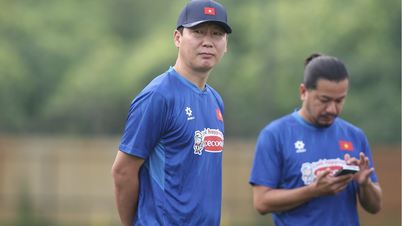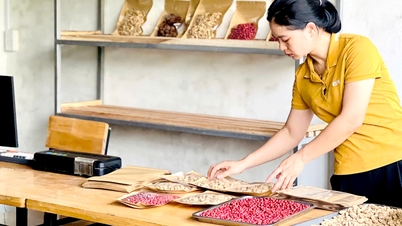The book “After Passing the Entrance Exam: The Mystery of the Differences in the Future of College Students” reveals the real picture of 62 top students from 2 top universities in China and Asia (Tsinghua University and Fudan University). The study shows that although they are all people with outstanding intelligence, their lives and development paths after college are very different.
Some people quickly land high-paying jobs right after graduation, while others struggle and become financially dependent on their parents.
This raises the question: Why do people with similar academic backgrounds have such different future trajectories? The answer lies in how skills are developed in childhood.

1. Practical skills: Learning by doing
Many parents avoid assigning chores to their children so they can spend more time studying. However, research shows that practicing practical skills not only helps children develop a sense of responsibility but also promotes independence.
A typical example is a male student who got into Tsinghua University and complained because his mother asked him to do housework. However, his mother believed that this was a way to help him practice being attentive and responsible. This view is reinforced by research by the Chinese Academyof Educational Sciences, which showed that 86.92% of children who regularly do housework have higher academic performance.
Parents should practice practical skills for children according to each stage of development:
- 2-3 years old: Observation, perception of order.
- 4-5 years old: Practice concentration and follow instructions.
- 6-8 years old: Build discipline through simple tasks.
- 9-15 years old: Strengthening the sense of responsibility towards family and surrounding environment.
- 16-18 years old: Develop empathy and social responsibility through community activities.
2. Ability to withstand pressure: Courage to overcome challenges
In modern society, many children are vulnerable to criticism. One of the main reasons is overprotective parents, which leaves children with few opportunities to face failure and develop mental resilience.
Research from Nanjing Normal University shows that children who are resilient to stress are less stressed and have better problem-solving and flexible thinking skills. To help your child develop these skills, parents can create controlled challenges, such as:
- Do not respond to all of your child's requests immediately, helping them learn to be patient.
- Let children experience failure through small situations, such as losing a game or getting up after falling.
- Guide children to solve problems instead of avoiding difficulties.
3. Financial management skills: Understanding economic responsibility
A 21-year-old Chinese student once caused controversy on Chinese social media when he complained that his 3,000 yuan (about 10.5 million VND) monthly pocket money was not enough. This story reflects the reality that many young people lack financial management skills and do not understand the value of money and economic responsibility.
To avoid this situation, children need to be taught how to manage finances early. Parents can guide their children to:
- Distinguish between needs and wants, avoid spending money impulsively.
- Receive weekly or monthly allowances to learn how to plan your spending wisely.
- Do small age-appropriate chores to understand the value of labor and money.
4. Empathy: Mastering emotional intelligence
Research on top students at China's top universities also agrees with a 40-year study by Harvard University, which asserts that emotional intelligence accounts for 70% of the factors that determine career success, surpassing even professional ability.
To nurture empathy—a key component of EQ—parents and teachers can:
- Guide children to express their emotions positively, help them control and express their thoughts appropriately.
- Set an example by showing kindness, because children often learn more from adults' actions than from their teachings.
- Encourage children to empathize, by asking questions that get them thinking about other people's feelings and perspectives.
5. Spirit of lifelong learning: Nurturing passion for knowledge
Successful people are not necessarily those who remember the most, but those who always maintain the spirit of lifelong learning. In a world that is constantly changing, the ability to absorb new knowledge is the key to helping each individual adapt and develop.
To encourage learning, parents and teachers can:
- Support children's personal interests, help them discover and develop their passions.
- Build growth mindset, encourage children to overcome challenges, not afraid of failure.
- Set an example with a positive learning attitude, demonstrate a love of learning and proactively seek new knowledge.

Source: https://vietnamnet.vn/nghien-cuu-62-sinh-vien-tinh-hoa-truong-top-1-chau-a-5-ky-nang-can-ren-cho-con-2387369.html




































































































Comment (0)